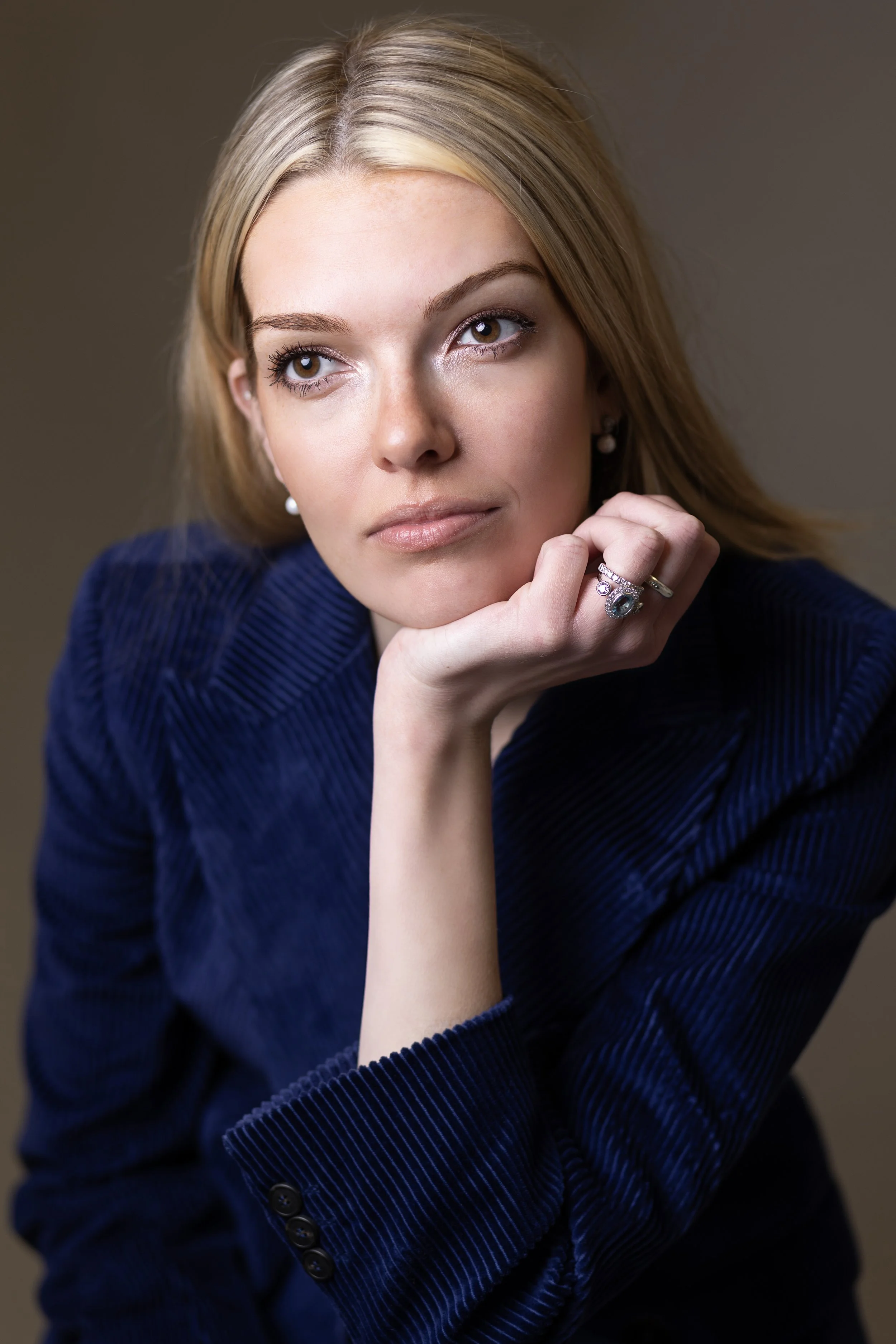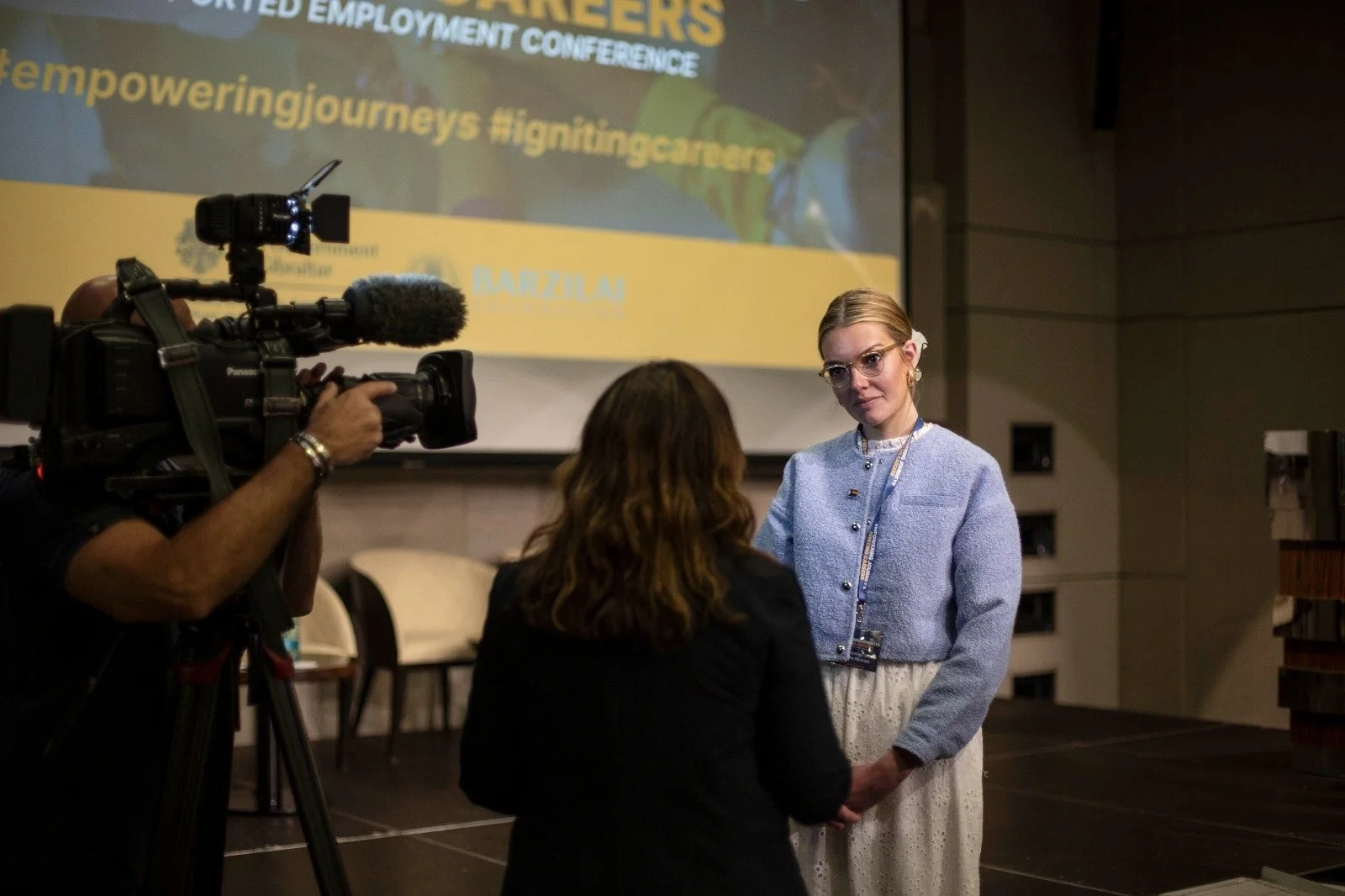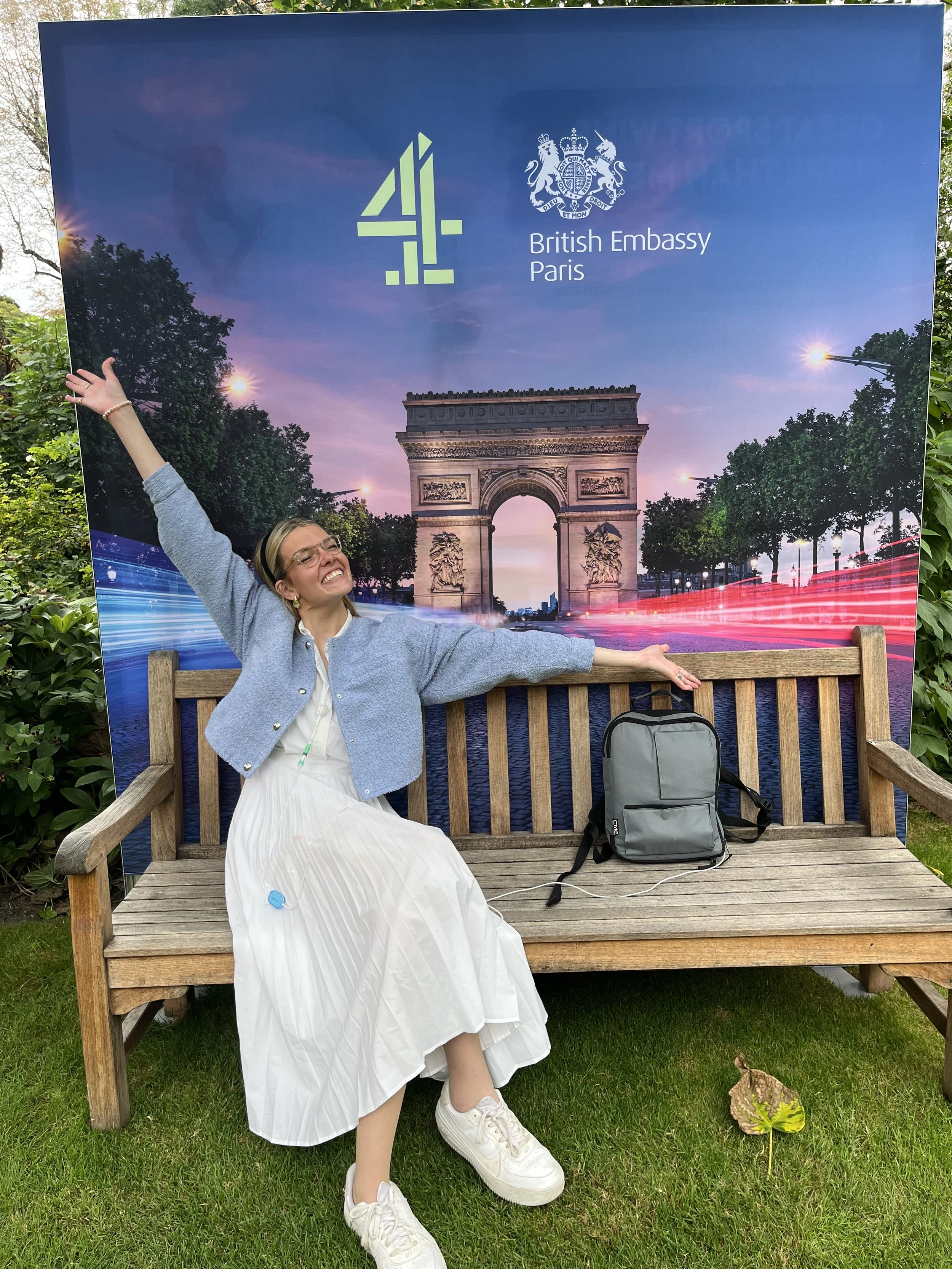Making Change
At 22 years old, with multiple organs failing, Celia Chartres-Aris was told she had a less than 10 per cent chance of survival. Today, she’s designing new laws aimed at levelling the playing field for the disability community.
WORDS // KATE THOMAS
Celia Chartres-Aris wants you to know that everything is going to be okay. Those six reassuring words are what Celia longed to hear when she received her first feeding tube.
Celia is a UK-based, multi-award winning adviser, lobbyist, investor and policy designer. Some would say she’s the ultimate advocate. If you’re wanting to design new legislation or improve equity of representation for disabled people, she’s the person you’re likely to turn to.
Apple, LinkedIn and Coca-Cola have all enlisted her help. So too have the UK Government, the European Union and the United Nations. Her work has been recognised by Forbes, The Financial Times, Metro and the BBC and, in 2024, the Shaw Trust Disability Power 100 named her the UK’s most influential disabled person.
But rewind to 2019 and, as Celia lay in hospital, surrounded by the beeping of monitors and the glare of bright hospital lights, she was about to be met with a smorgasbord of feeding tubes.
“The feeding tubes were coming on and off,” Celia recalls. “I had NGs [nasogastric tubes], which then switched to NJs [nasojejunal tubes]. Then the NJ tubes stopped working and I was completely bed-bound for about a year.”
Growing up in picturesque Hampshire in the UK, Celia was often referred to as “the sick kid”. She was diagnosed with multiple conditions before doctors identified Loeys-Dietz syndrome, a genetic connective tissue disorder that she shares with her father.
Celia began studying law, a passion she had since childhood, with aspirations to pursue a career in politics. “I was mad about it. My family always used to say that I was getting a degree in arguing,” she says with a grin.
During Celia’s second year of university, her health took a dramatic turn from “she’s always ill” to “something really isn’t right”. She began experiencing unexplained stomach issues.
“I was struggling through my degree, just on my final legs trying to pull myself through it,” Celia says. “I left university early but very much had the mentality that I can do anything – and I won’t let my disability stop me.”
After leaving university, Celia met her future husband and began living a more relaxed life, trying to get back on her feet. Then, the pandemic hit and Celia experienced non-Covid- related multiple organ failure, leading to her being placed on total parenteral nutrition (TPN), where essential nutrients are delivered directly into the bloodstream.
Her doctors gave her a slim chance of going home, just under 10 per cent. In intensive care, she was isolated and too weak to even hold her phone, relying on nurses to relay messages from family and friends. The stakes were especially high but, after months upon months in hospital, she returned home.
“I survived. I did it. I fuelled my organs back up again and we got there,” says Celia. “I was sitting at home, my new life on TPN, not able to eat or drink, trying to rebuild my body back as much as I could, thinking to myself, what am I going to do?”
It didn’t take long before she had an idea. Using her specialist knowledge in human rights law and passion for accessibility, Celia helped birth the world’s first policy think tank focused on disability. From there, her career snowballed to working around the world with governments and policy makers to design new and amend old legislations.
Now 27-years-old, five years after first receiving her TPN, Celia describes her connection with her tube as “a funny relationship”.
“I am never going to sit here and say, ‘I love it. It’s amazing’,” she says.
Celia explains that it’s taken a lot from her, like the experiences of being a 20-year-old out with friends for drinks or dinners. Some of her friendships have faded, because people assumed she couldn’t join in.
“But it’s given me my life - I wouldn’t survive without it,” she says.
Throughout her journey Celia has encountered many misconceptions – one of the biggest being that people who are tube-fed can’t have fun. She’s experienced everything from people not making space for her at the dinner table to others pulling on her tube, laughing, or even shouting at her in the street.
In a recent LinkedIn post, Celia shared an encounter where a passerby called her tube “disgusting”. She wrote:
“Do you not think that as a young woman covered in tubes, bags collecting fluids, and goodness knows what, and with a body which doesn’t look like anyone I see in the media, I battle with my appearance and self- confidence every single damn day.”
Alongside her post was a photo of Celia, her hair swept to one side and her shirt pulled down to reveal the array of tubes and tape across her chest. She signed off by saying:
“This picture is for you. Enjoy my disgustingness. I for one won’t hide, or stop showing what I wish I had seen growing up, to know that all bodies are different, and all bodies deserve to be seen and respected with equity.”
Now would be a good time to mention that, among her other accolades, Celia was the first person to walk London Fashion Week while having a blood transfusion.
She believes that most of the time, when people act with discrimination towards disability and feeding tubes, it’s not out of hatred but, rather, a lack of understanding. She also believes there’s a massive misunderstanding about the purpose of tubes.
“There has been such amazing awareness around feeding tubes and eating disorders,” Celia says. “But there hasn’t been enough conversation around people that live with these forever. This is our lives. This isn’t going anywhere. I’m going to have this for the rest of my life.”
It can feel taboo and unsexy to talk about things like food digestion and bathroom habits. But Celia implores us to shake off our discomfort and try, especially for those who are new to tube-life.
“I wish people would be able to see [tubes] as these incredible life-giving things, not something disgusting that we don’t want to talk about or see. The ultimate goal would be – and I hate the word normal but I’m going to use it – to normalise tube-feeding as part of everyday life. It’s just your body.”
Celia’s daily routine is centred around her food pump schedule. She starts her day by unplugging at 7am and reconnects at 4pm. Everything she does revolves around these times.
Following such a strict schedule can feel limiting - and Celia emphasises that there simply isn’t enough psychological support for people transitioning to life with a tube. “What’s not covered are the mental health implications of adjusting your lifestyle and learning to socialise and participate again,” she says. And she’s petitioned her own hospital about this on numerous occasions.
“As soon as somebody is given a tube, there should be an automatic referral to a mental health support team. It’s vital.”
Drawing from her own experiences, Celia highlights the need to find coping mechanisms that work for you.
“I always focus on the purpose behind it and think about where I’d be without it. When I didn’t have my TPN, I dreaded food. Everything I ate made me sick and I often had blisters and burns all over my mouth from vomiting.”
Celia stresses that it’s okay to feel sad that life didn’t turn out how you’d planned or hoped. You don’t have to feel positive all the time, but it’s important to “remember that your tube has given you your life back”. All the happy moments – playing with your dog or going on vacation – are possible because of it and fuelled by it.
“I wouldn’t be able to do any of the things I’m doing now if I didn’t have my tube,” she says. “The alternative would not make me happier. It wouldn’t make my life better.”
Celia often feels nervous about sharing her personal experiences. However, that anxiety is outweighed by her desire to shed light on the realistic side of disability. She believes that every story she shares helps someone out there feel less alone.
“Trust me, everything you’re thinking, I get it,” she says. “The biggest thing I’ve always wanted to be told is that you don’t need to do things the way everybody else does. Being different is the one thing that we all have in common. Everything is going to be okay.”





